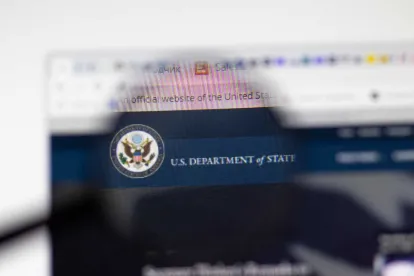Seasoned business immigration attorneys recall “visa revalidation” with great fondness. It is hard to imagine now, with visa appointment backlogs of months and even years at U.S. consulates all over the world, but it was once possible to send a passport to the Department of State’s Revalidation Division in St. Louis, Missouri, along with a few simple supporting documents, and within 10 to 12 weeks, get the passport back with a renewed visa in it. Those were the days!
The popular domestic revalidation program was an indirect casualty of 9/11. In December 2001, in response to the attacks, Rep. James Sensenbrenner (R., WI) introduced the Enhanced Border Security and Visa Entry Reform Act, which became law in May 2002. Section 302 of the Act mandated a phased-in transition to a biometrics-based system for all visa issuances, all Visa Waiver country participation, and all border crossing identification cards. Citing collection of digital fingerprints as “not feasible,” the Revalidation Division in St. Louis ceased accepting applications on July 16, 2004.
Over the past few years, there have been whisperings at the State Department that domestic visa revalidation might rise from the ashes of 9/11, but no details or timelines had been released, until now. Bloomberg News reported on February 9 that the State Department will launch a pilot program later this year from its new Consular Division in Washington, D.C., to offer domestic visa options again.
The original program served applicants who already held visas in any of the following categories: E, H, I, L, O, and P. A Deputy Assistant Secretary for Visa Services in the State Department’s Bureau of Consular Affairs told Bloomberg the new program will initially be available only to H and L visa holders, but may be expanded in the future. Notably, unlike the original program, the new pilot program will also serve first-time visa applicants.
The program is expected to be a boon not only for visa applicants themselves, but also for U.S. visa-issuing consulates worldwide. Despite greatly expanding who is eligible for interview waivers and dropbox submissions, consular staff are still struggling under the weight of tremendous application backlogs generated during almost 3 years of pandemic closures and slow-downs. In Chennai, for example, a first-time H-1B visa applicant will wait 227 calendar days – almost 8 months – for an appointment.
While many questions remain – including how the program will work, how long it will take, what it will cost, and who will be eligible – it is very welcome news indeed that it will soon be possible to obtain a visa domestically again.




 />i
/>i
